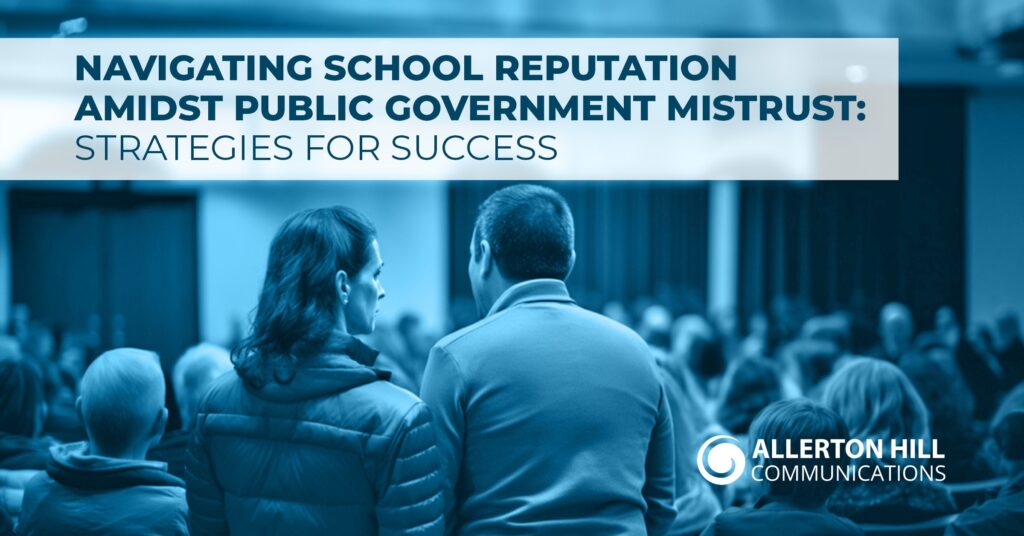As we enter 2024, an important year with the presidential election on the horizon, school leaders must navigate these politically charged times with care. Let’s dive into some communication strategies to protect your school’s reputation amidst public government mistrust.
Background: A Shifting Landscape
A Pew Research Center survey from October 2022 revealed that there’s a divide in public perception when it comes to K-12 schools. While 72% of Democrats and Democratic-leaning independents believe schools have a positive effect on the nation, 61% of Republicans and GOP leaners believe they are having a negative impact. Additionally, confidence in K-12 principals dipped in 2021 when compared with pre-pandemic levels, particularly among Republicans.
There is some good news. Confidence in classroom teachers remains high, with 93% earning a total positive rating and 73% being rated as excellent or good, according to Gallup. This is likely because teachers are the most “local” face of your school, serving as the first point of contact for families.
Challenges in Presidential Election Years
Presidential election years can exacerbate the challenges schools face. The increased political noise, heightened emotions, and opinions in the community, combined with intensified scrutiny of educational content and policies, create a complex environment. However, these challenges also present opportunities for civic engagement and community-building. The key is to be proactive before others hijack your message.
Strategies for Success
You can rise above the distractions and stay true to your mission of providing quality education to all students in a few ways.
1. Have inclusive dialogue with students, staff and families. Engage your stakeholders in meaningful conversations through in-person meetings, social media and newsletters, to ensure everyone has a voice. Your district’s primary mission is education, so stay committed to non-partisan, student-centered messages that transcend party lines.
2. Use all communication channels available to you. Some people live on social media. Others prefer email. Others still read the local newspaper (if yours still exists), and some love nothing more than opening their mailbox to see something other than junk mail and bills. It’s ok (in fact, it’s encouraged) to repeat the same information across all communication channels because people get their information in different ways. Also, research shows that people must see or hear things three times before they resonate, so the more places you tell your story, the more likely it is to be seen, heard and remembered.
3. Harness the power of storytelling. Stories have the power to humanize your school and connect with your audience. They help people see your vision and mission come to life, which builds trust. Share stories that showcase the dedication and passion of your staff, the achievements of your students, and the positive impact your school has on the community. Through storytelling, you can set the tone and control the conversation about your schools.
The winning formula for overcoming government mistrust is providing clear, unbiased information, and sharing your story often and everywhere. So, let’s shout your school’s story from the rooftops and make 2024 a year of success!



